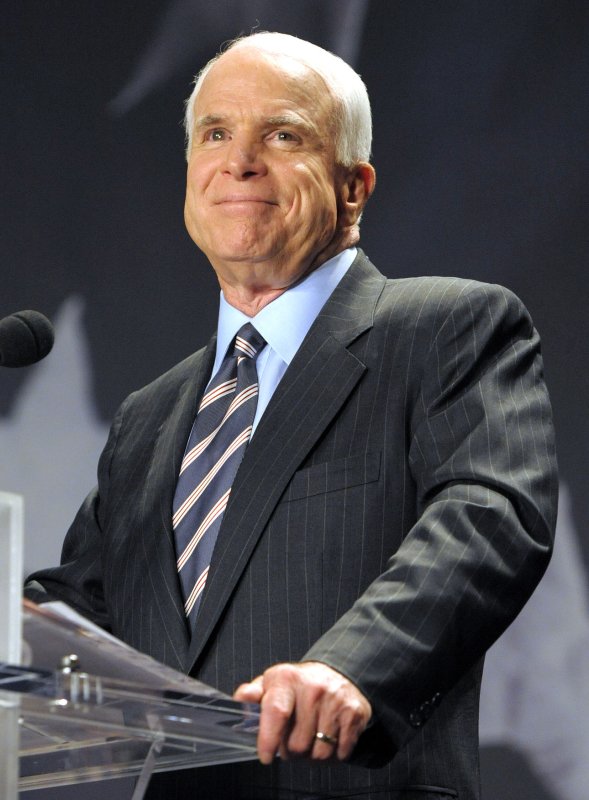WASHINGTON, July 9 (UPI) -- Healthcare experts are questioning the feasibility of likely Republican U.S. presidential nominee John McCain's plan to subsidize high-risk insurance pools.
Such state-run, high-risk pools are used by 35 states as stop-gap measures to provide health insurance for about 207,000 people who otherwise cannot obtain coverage from private insurers. In April, McCain, R-Ariz., announced that if elected president he would expand federal support for state high-risk pools or create a structure modeled after them, The Washington Post reported Wednesday.















